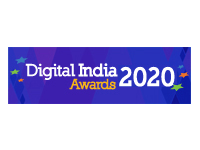
Vol 21 No 3 & 4 September & December 2002
Elizabeth Alexander
n-Logue Communications (P) Ltd.
5th Floor, Gokul Arcade, 2 Sardar Patel Road, Chennai-600020
E-Mail: elizabeth[dot]alexander[at]n-Logue[dot]com
ABSTRACT
Written in non-technical language, the article intends to give people a flavour of what access to the Internet can mean in the lives of people in rural India. The world that it opens up for them and the potential it has for bringing significant change in their lives is enormous. The article stays away from issues of connectivity, bandwidth and access devices and instead concentrates on the impact that this can create. n-Logue is a rural Internet service provider dedicated to providing Internet access to villages in India. It was incubated by Dr Ashok Jhunjhunwala and other alumni of IIT-Madras. What is written in the article is based on their work in the District of Madurai in Tamil Nadu, South India.
KEYWORDS: Internet access; Rural areas; India.
Rosy opens her PC, logins into Yahoo chat and types out a message. "Madhu, are you there?" Comes the reply "Yes, what's the matter". "Can you tell me where I can find information on colleges which offer diploma courses in automobile engineering?" "Give me a few minutes. I'll find out and send you an email". Five minutes later she opens the email to discover a few URLs which she types into her browser window and does her search.
Common enough scenario, right? Happens between friends all the time. Easiest way to get information using the Internet and a little help from your friends. Except that Rosy lives in a small village in Tamil Nadu called Padinettamkudi, 35 kilometres from the nearest big city (Madurai). And Madhu sits in Chennai, the capital of Tamil Nadu, 200 km away. The village has about 1000 people, does not have any public telephones, no road leading to the village and the local school offers classes only up to class eight. A few months ago, most people there had not even seen a PC, much less used one. And today, in this little village, Rosy makes more than Rs. 4000 a month selling Internet and PC-based services to the people there. This is not a dream for the future. It is a reality. And Rosy is one of the many stakeholders in a mission to make this a part of every rural Indian's reality.
Rosy, a village Internet kiosk operator, manages a kiosk in her village, set up for her with the assistance of n-Logue, a rural Internet service provider, incubated by the TeNeT Group of IIT- Madras. Using this and all the services n-Logue enables for her, she is able to bring the benefits of the Internet to the people of Padinettamkudi. The kiosk equipment cost Rs. 51,500. It was bought by a local tea shop owner, taking a loan from a bank. Since he did not know how to operate a computer, he appointed Rosy to run the kiosk for him. She gets a salary and a percentage of the profits.
Picture this. A woman walks into her kiosk with a paper in her hand. "I need a birth certificate for my daughter. She starts school in a few weeks." Rosy takes down the necessary details - name of the girl, name of parents, date of birth, place of birth, name of hospital - typing them into a document as she asks for them. Then types out an email to a government officer at the taluk office (who dispenses birth certificates), attaches the document and sends it off. "As soon as I get the acknowledgement, I shall let you know", she tells the woman. "When the certificate is ready, they will send a message informing us. That would be Rs. 10, please." Besides this she can also apply for a variety of other certificates (income, community, pension, etc), send complaints regarding malfunctioning of water pumps, or just send emails on various complaints to the local government officials. They even sent one to the Chief Minister's Grievance Cell and received an acknowledgement, which she is most proud of. The support of the state and district government officials has been very useful in making all this happen. She has already had two visits from the State's IT secretary.
In walk a group of women want to know their fortune. She accesses the `Astrology' page of a popular Tamil portal called Webulagam. Each woman gives her a number at random which she types in and then reads out the corresponding forecast that appears on the screen. To the woman wanting the birth certificate, this is new. A veteran explains to her, "This is like Parrot Astrology. But much more powerful. You see it's from a computer". And you only pay 2 rupees. "Can I try?" And Rosy has one more customer.
A man brings in an elderly relative. It's his uncle and he has cataract in both eyes. Rosy asks him a few questions that she reads to him from a questionnaire posted on the local n-Logue Web site. "What is your name. How old are you. Describe in detail the symptoms you experience. Do you feel any pain in the left eye / right eye / both eyes..." Ten questions in all. The answers are recorded in a voice file, in the patient's own words. Then she takes a picture of each eye, expertly managing a torch and the camera and the mouse all by herself. She was trained in the technique by a doctor at the Aravind Eye Hospital. She sends the picture and the voice file to the hospital. There is another mail which has just come back from the hospital in response to a similar complaint sent the day before. The attached letter says in Tamil, "Dear Arumugam, please come to the Free Section of the Aravind Eye Hospital at 10.30 AM on any day and hand over this letter to nurse Indrani who is at the reception. You will be taken for the necessary treatment immediately. The bus you need to take is ...".
Besides the eye ailments, the other service she provides is tests for myopia for school children. Many children in her village do not know that the reason the world looked so blurred all the time is because they needed spectacles. Now, using a simple eye-chart, she is able to do a preliminary test and ascertain if they need to go for a more comprehensive test. If they do, she sends another mail to Aravind making an appointment for them.
Next in line are her regular students. Except that they are three old men and they are there because they cannot read. She has a software developed by a big Indian software company for the specific purpose of teaching illiterate adults to read. She takes them through a 45 minute class, patiently going over the various words. As the mouse moves over the words on the screen, a voice-over pronounces the words aloud. The old men are fascinated as they repeat after their electronic teacher. "Pa-dam, Pat-ta-nam, Pa-da-kkam". Rosy will be paid by the District Literacy Mission for every person she makes literate. For her elderly students, the service is free. The next set of students is altogether different, young, confident, familiar with the external workings of computers. They are there to do some browsing and check their emails. But they don't need Rosy's help. And none of them had ever touched a computer before Rosy's kiosk was set up.
One of them sends a mail to a friend. "You know, he is working in Singapore. In a software company", he says proudly." I am also going to work in software." There are several people from Rosy's village in Singapore, and still more in Dubai. But they are not in `software'. Most of them are employed as construction workers, mechanics and so on. All of them spend a lot of money every week calling their families back home in the village, some of whom they have not seen for many months, even years.
Things have changed a bit now. Some of them no longer call. They send emails. Those who can manage it, use voice or video chat. For the people in the village who cannot write, an easy utility is available. They can record short voice clips and send them as email attachments.
One man walks in whose son works as a typist in Bahrain. He has come to check if there is a message from him. To his immense excitement, there is. "My dear Appa", it says, "How is your health. I hope you have received the money. I am coming home in August. I hope you have seen a girl for me."He takes a print-out and then dictates a response for Rosy to type, "I have received the money. But your brother has not sent any so far. Tell him this from me. Come home safely. Your Chitappa has seen three girls for you. Two are BA-pass. One has done computers." He also takes a picture of himself using her Web camera and sends it as an attachment. Mission accomplished, he pays for the mail and the print-out, and leaves obviously delighted with the entire experience. He will be back again tomorrow ... "Is there a message from my son?"
The next few hours are fascinating. A farmer walks in with a sample of his okra crop, disease obvious in the stem and leaves. The farmer is distraught. He could lose his entire crop. Rosy takes pictures of the diseased parts from several angles and attaches them to a mail that she types in Tamil. It's to the Tamil Nadu Agricultural College and Research Institute. "Dear Dr Selvaraj, please can you tell us what we must do for this problem." Come back tomorrow, she tells the farmer. There is bound to be a response.
Today, the farmers look to Rosy for solutions to long standing problems with their crops. And she, with just a class 12 education, is able to tell them what to do. "Make a mixture of boron and nitrogen solution. Spray this on the crop ..." The remedies suggested by the faculty of the Agricultural College have helped several farmers save their crops, worth thousands of rupees. What used to be the privileged information of an elite few has now been brought into the public domain.
A woman walks in with her chicken. Its legs are bent and it cannot walk properly. For the next few minutes, Rosy and the chicken's owner do a little dance trying to make the chicken sit still while she tries to take a picture of its legs. Finally they do and she sends the pictures to the TN Association for Veterinary and Animal Sciences. "Dear Dr Kathiresan. Please can you tell us what we must do for this problem". The chicken's owner does not have the money to pay. "Give it to me tomorrow." Credit is common in villages and Rosy knows she will get the money in a few days.
Meanwhile, another woman has walked in, attracted by the spectacle of a chicken being photographed. "My neighbour's cow has some problem. Can you send an email on that also? But how will they bring a cow into your kiosk?" "There is a camera that we can carry outside and take pictures. But it's costly. When I can afford the money, I will buy that also. Meanwhile, ask her to bring her cow to the door. I'll try and take a picture using this camera."
A young man walks in. "I want to take a loan to buy an auto. How do I do it?" She logs into the Government Web site and reads through the various schemes listed there. "There are two schemes - an auto loan from TIIC and a PMRY loan. You can choose the one you want." She downloads both the forms and gives him a printout. Read it completely and come back. You can send your loan application directly to the GM-District Industries Centre from here."
An older man walks in. He is to travel to Tirunelveli by train that day. His ticket was on a wait list and he wants to check if it has been confirmed. A week ago she had booked it for him by sending an email to a travel agent in Madurai. The man booked the ticket and sent the ticket details back to his client by another email. By going to the Web site of the Indian Railways, it is possible to check the status of the ticket. Waitlist number 1, it says. "You will definitely get a confirmed seat. You may as well go". All he has to do now is go to the travel agent's office and pick up the ticket on the way to the station.
Next it's the turn of three children to have their daily English classes. Using a CD-based software, she teaches basic English grammar to the children. Normally, they find the class interesting. Today they are impatient to get it over with. Rosy has announced a movie show at 7 PM and that's what they are waiting for. She has rented a VCD from a video library and is planning to have one show daily over the next three days. On Sunday, she would have three shows.A few more kids and a couple of women turn up and hand over the money to her. They are all there for the movie. Before she inserts the VCD in the drive, she checks for responses to the mails she has sent that day. There is one from the veterinary doctor. "I have seen your chick photos. It is affected by vitamin B-complex deficiency. Purchase the medicine - tefroli or vimerol or growiplex (available in medical shop). Take one drop of medicine and give it to chick by ink pillar, morning and evening to its mouth for 5 days. You can give rice polish also (arisi pudaikkumpothu varum thavidu). If any doubt contact us again" She prints it out ready to hand over to the owner of the `chick' the next day.
As she does so, a young man walks in. "Did you get the information about the automobile engineering diploma?" "Yes, I did, here they are". He runs through the list of sites she has printed out for him. He will be back tomorrow for a more detailed study. Meanwhile, it's show-time. She presses Play and soon the little room is filled with the sounds of a popular Tamil movie song. `Gemini, Gemini, Gemini, Gemini..."
As the audience watches the small screen with rapt attention, she totals the money she has made that day - 145 rupees. She knows she needs to make at least 90 rupees a day to break even. That's 55 rupees straight profit. This has been a good day. Tomorrow, there will be more services to offer (bus ticket booking, animal rearing training programmes, online counseling for students, contacting embassies for visa validation, legal advice online, online jobs, horoscope matching...).
More services means more customers visiting her kiosk, more money to be earned.
Tomorrow will be even better...
Information Today & Tomorrow, Vol. 21, No. 3 & 4, September & December 2002, p.11-p.13
http://itt.nissat.tripod.com/itt02034/kiosk.htm





















